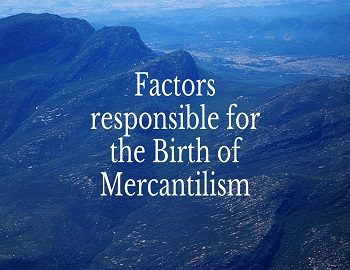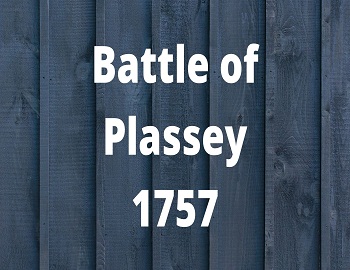Mercantilism:
The word ‘mercantilism’, also known as ‘tradesmanship‘ or ‘commercialism‘ has been used for a long time but mercantilism has not been defined by anyone, because it does not constitute any solid and systematic ideology, hence defies definition. Adam Smith was the first man who referred to the term mercantilism in his book for the first time in the year 1776. The same term was also used by prominent historian Gustav Schmoller in 1884.
L. H. Haney writes about it, “Mercantilism comprises the economic views which prevailed among European statesmen from the sixteenth to the latter part of the eighteenth century. As will appear, such views largely concerned commerce, the idea prevailing that gains through international trade are the principal factors in promoting national power”.
In the beginning of the sixteenth century, there occurred commercial upheavals which contributed to a great revolution in the economic life of the society. The reasons for these economic upheavals were as follows-
Renaissance- Renaissance awoke the intellectual power and thought among mankind. Science and literature reflected the impact of the Renaissance. Various scientific inventions including the printing press revolutionized people’s thinking. People began to think about happiness and prosperity in contemporary life instead of religion and salvation. Thus aspiration for physical happiness gave impetus to the tendency of mercantilism.
Geographical Discoveries- The discoveries of new sea routes and new countries became possible because of the desire for great profit motivated adventurous persons like Columbus and Vasco Da Gama. Later on, the merchants of England, France and Holland in order to develop their trade and commerce discovered some new countries in the north. The development of trade and commerce made the collection of wealth possible.
Population Increase- During this period the population of Europe increased tremendously. The increase in population made economic development possible in two ways. First, labour is available at cheap rates. Secondly, things may be sold at high rates because of their increasing demand. The increasing demand for commodities keeps the marginal productivity of capital high and the investors are always willing to invest. In this way, industry and business grew because of the growth of population and the business class (the bourgeoise) became powerful in society.
Reformation- Mercantilism also gathered new power due to changes in the religious sphere. The leaders of the reformation laid stress on personal freedom and criticized the supremacy of the church. Being encouraged by the reformation people began to oppose religious privileges and supported the theory of individualism. No doubt, the theory of divine right continued to hold water long after, however, people began to use logic in the matter pertaining to economic matters.
Economic Changes- The economic situation of that period played a remarkable role in the rise of mercantilism. All the business transactions of the middle ages were carried out by means of the exchange of goods. As the introduction of money removed this obstacle, the field of trade and commerce expanded. The banking system also flourished during this period and the banks played a significant role in the development of trade and commerce. By the end of the sixteenth century, rich deposits of gold and silver were explored in many European countries and several parts of America also inspired many brave and adventurous merchants to take extensive interest in trade and commerce which gave new power to mercantilism.
Change in the Political Thoughts- There were great changes in political thoughts at that time. In his book “The Prince” Machiavelli advised the people to obey the power of the state in place of that of the Church. He clarified that a popular king need not take morality into consideration if he wants to work in the interest of the state. It would increase the king’s power and the state would make material progress. Jean Bodin also supported the cause of the supremacy of the state. He stated that the state is above law and empowered to rule over all the citizens. Such thoughts consolidated the strength of the state. They were of the opinion that only absolute monarchy could establish peace and order in society. Owing to these economic changes the importance of the merchant class enhanced in society. The king needed money in order to fulfil his demands and trade was the only source of getting money, hence the king provided all possible help to the development of trade and commerce for his interest.
Rise of Nation-States– First of all, two powerful nation-states arose in the fifteenth century in Western Europe under the leadership of Emperor Henry VII of England and the French ruler Louis XI. Then, by the end of the sixteenth-century nation-states were formed in Portugal, Spain and Holland followed by Sweden at the beginning of the Seventeenth Century, and by Prussia as well as Russia, by the end of the seventeenth century. The formation of powerful states brought about peace and security which are so essential for the growth of a business. In addition to it, the geographical territories of nation-states were also extended. Consequently, the demand for goods increased very rapidly. In these circumstances, the business expanded. It contributed a new strength to mercantilism. Every state was eager to enhance its political power. The only way to increase national strength was to encouraged the traders for overseas business and to inspire them to import precious metals.









Comments (No)